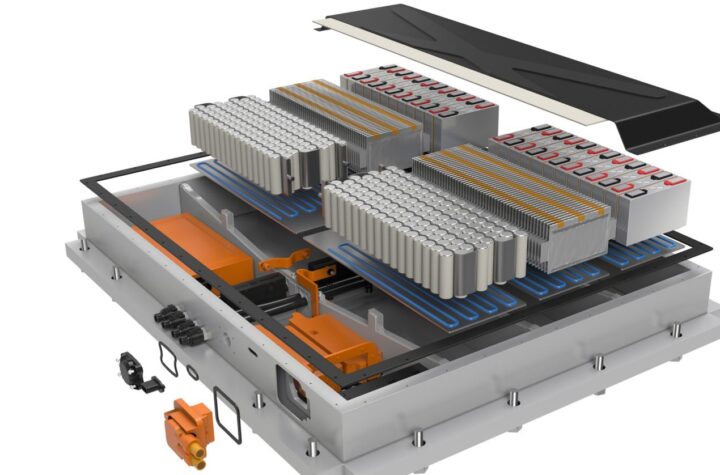
 On Thursday, Sept. 23, 2004, California Governor Arnold Schwarzenegger signed a law opening California’s car-pool lanes to gasoline-hybrid vehicles that get more than 45 miles per gallon, essentially drawing a technical line in the sand. This arbitrary 45 mileper- gallon number encompasses a rather small group of vehicles that includes the Toyota Prius, Honda Civic Hybrid and Honda Insight. Ford’s Escape hybrid SUV, at a measly 36 mpg missed the cut as will General Motors hybrid pickups. I suppose this will make it a little more palatable for those Californians waiting for their Prius’, knowing that they’re buying their way into such an exclusive club.
On Thursday, Sept. 23, 2004, California Governor Arnold Schwarzenegger signed a law opening California’s car-pool lanes to gasoline-hybrid vehicles that get more than 45 miles per gallon, essentially drawing a technical line in the sand. This arbitrary 45 mileper- gallon number encompasses a rather small group of vehicles that includes the Toyota Prius, Honda Civic Hybrid and Honda Insight. Ford’s Escape hybrid SUV, at a measly 36 mpg missed the cut as will General Motors hybrid pickups. I suppose this will make it a little more palatable for those Californians waiting for their Prius’, knowing that they’re buying their way into such an exclusive club.
David Morris has taken it a step further. The co-founder and vice president of the Institute for Local Self Reliance in Minneapolis, Minn., a nonprofit research and educational organization that provides technical assistance and information on environmentally sound economic development strategies, says in a Sept., 1, 2004 editorial that the introduction of the Ford Escape hybrid “marks the end of the beginning of the long-evolving saga of the hybrid electric vehicle.”
Morris contends that a hybrid electric car should be equated with high efficiency and feels that the Escape SUV’s efficiency isn’t high enough to place it in the incentive-receiving hybrid category. His concern is that state, local and federal government will reward slackers like Ford and GM with incentives to manufacture hybrid vehicles that don’t meet his, or Governor Schwarzenegger’s, rigorous standards.
He says that government should design incentives that encourage the development of his kind of hybrids, concerned that right now, a vehicle that is simply equipped with both an engine and electric motors for propulsion qualifies for most federal and state incentives, including tax incentives, priority for purchasing for government fleets, free parking and access to HOV freeway lanes — and that’s not enough.
Let’s take a look at this exclusive hybrid club. The two-seat Honda Insight makes a good city commuter car and not much else. Both Civic and Prius are small four-door sedans that fit the needs of a certain segment of society. Now let’s do some math. How many Insights would it take to get 45 kids to school in the morning? How many Priuses would it take to haul a family of six on a camping trip?
The fact of the matter is that we need and drive all kinds of vehicles in this country. Why should we only reward those who have developed a lifestyle that supports a small car, while we penalize those who need something else?
Morris seems to think that Prius’ popularity means that it’s the only kind of hybrid that people want to buy. Most hybrid intenders don’t really know what a hybrid is. First time visitors to hybrid enthusiast websites that I frequent are asking for hybrid minivans and SUVs because the Prius doesn’t fit their lifestyle.
In fact, the next batch of hybrid-electric vehicles entering the market are based on larger sedans and SUVs. And performance-oriented hybrids are on the horizon. (Maybe we should penalize auto companies for even suggesting that.) The auto industry is, after all, a business. They need to supply vehicles that people are willing to buy and pay enough for them that the company can make a profit. Consumer surveys show that fuel mileage isn’t at the top of the list of concerns when it comes to buying a car. While mileage is important, people choose vehicles for their function.
That’s why GM has taken a different tact with its hybrid pickups, building a benefit into the vehicle in the form of an on-board generator — a benefit that they hope people will be willing to pay for — while still increasing fuel mileage as a bonus.
We should applaud Ford for taking the initiative to develop and sell an SUV that gets 36 miles per gallon, while still taking a financial hit on each one it sells. GM deserves credit for helping to develop a hybrid/electric city bus that will save tons of fuel while cleaning up the environment. Other OEMs are bringing hybrids to market with a goal of making practical, desirable vehicles more fuel efficient. A gallon of fuel saved is one less we’re dependent on. We’re all in this together, let’s all share the reward.












More Stories
Your Guide to Filing a Car Accident Claim
Steps to Take Immediately After a Car Accident
What Makes SUV Cars More Prone to Accidents?